- Home
- Sharyn McCrumb
King's Mountain
King's Mountain Read online
The author and publisher have provided this e-book to you for your personal use only. You may not make this e-book publicly available in any way. Copyright infringement is against the law. If you believe the copy of this e-book you are reading infringes on the author’s copyright, please notify the publisher at: us.macmillanusa.com/piracy.
To my fellow descendants of the Overmountain Men
CONTENTS
Title Page
Copyright Notice
Dedication
Chapter 1
Chapter 2
Patrick Ferguson
Chapter 3
Virginia Sal
Chapter 4
Virginia Sal
Chapter 5
Chapter 6
Virginia Sal
Chapter 7
Virginia Sal
Chapter 8
Chapter 9
Chapter 10
Chapter 11
Virginia Sal
Chapter 12
Chapter 13
Chapter 14
Virginia Sal
Chapter 15
Chapter 16
Chapter 17
Virginia Sal
Chapter 18
Chapter 19
Chapter 20
Chapter 21
Chapter 22
Chapter 23
Epilogue
Acknowledgments
Also by Sharyn McCrumb
About the Author
Copyright
CHAPTER ONE
1776
My family might have had a more peaceful life if we had stayed in the Shenandoah Valley, but staying put was not in the blood of the Seviers. My ancestors had come from Navarre, that province lodged in the mountains between France and Spain, and, like most of the mountain people I have met since, they did not seem to care overmuch for governments telling them what to do. Anyhow, my grandfather was a Protestant, in a time and place where to espouse that belief was to court death, but instead of opting for the blessed martyrdom of a public execution, my practical forebear decided to suffer the world a while longer and make his escape from France. When Louis Quatorze revoked the Edict of Nantes, which had protected the Huguenots from persecution for nearly a century, Monsieur Sevier—or Xavier, as the family name was then—lit out for the more congenial political climate of England. I would have done the same myself, I think. I don’t say I won’t fight for a cause, but I prefer to let the other fellow do the dying.
When Grand-père settled in London, he changed the family name from “Xavier” to the more English-sounding “Sevier,” and then he married an Englishwoman to cement his change of nationality. He prospered in his adopted country, but that prosperity did not prevent my father, Valentine Sevier, from setting out for the colonies, to try his own luck at a new beginning.
I was born, then, on September 23, 1745, cradled by the mountains in the Shenandoah. In this colony of Virginia, I was christened “John,” all trace of the family’s French origins now all but forgotten in the new world, where the telling social distinctions were not country or faith, but skin color: white for station, black for servitude, and red—oh, red for danger.
I wondered if the hill country of my boyhood bore any resemblance to distant Navarre, or if the love of mountains in my blood harked back to those far-off Pyrenees, but perhaps the coincidence was only a matter of expedience: mountain land is more easily had than the fertile flat fields along the seaboard, because fewer people want it. I suppose they think the beauty of the land comes at too dear a price if the fields are steep and stony and the holdings isolated. The mass of humanity seems not to mind living piled in among one another like maggots on a dead crow, but I thought that high hills and elbow room were fine things, and if my people had been cast out of the Pyrenees for their philosophical stubbornness, then we would seek out our mountains elsewhere.
* * *
“You have the bloodline of a saint,” an old priest told me once.
He was passing through the long valley on his way to Charleston, perhaps to take up a posting at a Catholic parish somewhere to the south. Anyhow, he had stopped for the night in our Shenandoah village where my father kept a store. I passed the time of day with him, for I was always interested in talking to people from “away.” Any sort of learning was welcome. He was a little Frenchman, with great liquid eyes and a stillness that made one want to talk to fill up the silence.
I told him my name, and that I shared his French heritage, mentioning that we had once been “Xaviers” of Navarre. To my surprise he knew the name at once, for he nodded sagely and murmured a few words in a foreign tongue—French, or, for all I knew, Latin. Then he said, “St. Francis Xavier, he was. A founder of the Jesuit order and a great missionary in the east.” The old man smiled. “Perhaps you will be called to minister to the Indians one day.”
I said that I should like to help a good many of them into heaven, at any rate.
If the Frenchman took my meaning, he made no comment. At last he said, “Well, it is a good thing to be of such a lineage. Saint’s blood. No doubt you will be blessed in all things. Indeed, you have already the makings of a tall and handsome man. All will go well with you.”
* * *
If I had ambition in this life, I did not catch it from my father. He farmed and kept a country store, or perhaps it kept him, for as time went on, he was content to idle away his time with the drunkards and the gamblers at Culpeper Court House. He sent me to school at the Staunton Academy, though, perhaps hoping that I would make something of myself and keep him in spirits and card money in his dotage, but I had no inclination for the life of a scholar. I felt no call for medicine or the legal profession, so when my schoolfellows passed on to the college of William and Mary to become pillars of society, I made my way home to the Shenandoah, to become a clerk in the family store—well, somebody had to. There were nine young Seviers, but I was the eldest, and I thought I should see to it that the younger ones were kept fed. Perhaps it is a burden to feel responsible for so many mouths at so young an age, but the gift for leadership that was to show later in life may have sprung from those days when I was the oldest of so many. Perhaps I got in the way of thinking that I was elder brother to the world entire, and that it would always fall to me to keep the rest of humanity safe and fed.
You would think that a man who was content to fritter away his time with dice and whiskey would have been satisfied to have his affairs tended to by a hardworking son who shared neither of those vices, but it seemed that I was the star my father wished upon, for in my sixteenth year when I announced my intentions of settling down, he would have none of it.
“Married?” he thundered at me in a spirituous haze. “Why, you are no more than sixteen, boy! I won’t hear of it.”
“You have heard of it,” I said coldly. “For I just told you. And, as for stopping me, there is precious little chance of that. The other boys are old enough now to take my place as breadwinner. Let Joseph or Robert or Valentine keep the store and tend to the farm. Surely, I have done my share.”
“But you are sixteen,” my father said again.
I held my peace, for to tell my father that I felt twice that age would be disrespectful, and he was not a bad man—only a weak one. In truth I felt that having the responsibility only for the care of Sarah Hawkins would be a great relief—the day I wed her I would have eight fewer burdens than I’d had before. No one could have been less of a child at sixteen than I.
“Well, boy, you know your own mind,” said my father with an ill-concealed sneer. “I only hope you know what a long road you have ahead of you, and if you have chosen badly so soon in life, you will have many years of leisure in which to repent of it.”
I replied that I was more concerned
that Sarah would have cause to repent her choice of me. I was too much the dutiful son to add that I should take care to see that I did not turn out to be a likeness of my father, but the thought crossed my mind, then and later. There’s no telling how far you can go if you are outrunning something.
In 1761, I secured a tract of land and called it Long Meadows, and I set to farming and to siring a brood of young Seviers to help me work the land. Our holdings lay along the westward trail in a wide valley, and thus far at least I imitated my father: I farmed and kept a store of my own, but after more than a dozen years, we were all tired of seeing the world pass us by on that westward wagon road, and we decided to go west ourselves. My brother Valentine had left already, and he was homesteading on the frontier near the Shelbys. I made a couple of journeys out to see him, and to see if this wilderness really was the land of plenty that people said it was. When we finally set our minds to moving, the whole family set out together—my parents, my younger brothers Robert, Joseph, and Abraham—all headed for the backcountry. There were hardships, right enough, Indian attacks and backbreaking toil involved in carving a farmstead out of the endless forest, but game was plentiful, and there were land grants to be had. I never regretted the decision to settle on the frontier. Perhaps I was gambling a safe present for the chance of a prosperous future, but the game was worth the candle.
And the land was worth fighting for.
Perhaps the people along the seaboard were fighting the revolution for philosophical reasons—to escape unjust taxes, to choose their own leaders … they had a dozen reasons for wishing to be rid of British dominion. For the most part, those of us in the backcountry had but one reason.
The British wanted to throw us off our land and make us move back east of the mountains. They had made that long-ago treaty with the Indian nation, and they seemed to want to enforce it after all these years. I think they wanted us closer to their town garrisons, so that we could not easily oppose them.
Perhaps that priest from my boyhood meant what he’d said as no more than pleasantry, a social blessing given to a backwoods boy on a summer afternoon, costing him nothing, but I chose to take his words as a prophecy. Many’s the time that the memory of those words has emboldened me to courage and to action. I am blessed, I tell myself. I cannot fail.
And I very seldom do.
CHAPTER TWO
July 1776
It was the cows, you see. Bawling. Half a dozen of them out in the fields by the creek, past a grove of sycamores, just beyond sight of the fort. But not beyond sound. No, we could hear them well enough, at first lowing in their discomfort, and then bellowing in outright pain, for the beasts had not been milked in many a day.
Well, the caterwauling will stop when they begin to die, one of the hunters said.
But some of the younger women had begun crying themselves to hear the animals’ suffering and to be powerless to help. They were mothers themselves, and perhaps they thought that there was pain enough in being female, without having it made worse by the cruelty of men. Help them, the women said. Else, we will.
It is a trap, the men told them. The Indian savages what have laid siege to this fort know that storming the palisades would cost them dear as long as we have powder and shot, but they reckon that if they can trick us into opening the gates, they can rush the fort and kill us all. They have left the cows there to suffer to tempt us into going out. Their cries are meant to test our fortitude. Why, they would torture the beasts with hot knives if they thought it would weaken our resolve.
All this was unarguable truth. And although that assessment wasn’t kind or pleasant, it was indeed sound reasoning from seasoned warriors. Do not be tricked out of your citadel by an animal. Why, that advice was as old as Troy.
But when has reason ever triumphed over suffering?
* * *
At least we had been warned. We always knew there was danger, of course. On the Carolina frontier, it was never far away. In mid-July, a few days before the siege began, I had been down on Stoney Creek, directing the building of a new log fort that I would command, being the ranking elected officer of our local militia. Then in case of an Indian attack, those who lived on the nearby farms would have a fortified place of refuge. We were still a good ways from finishing construction when someone shouted that a rider was approaching, and we saw the trader Isaac Thomas, bareback on a jugheaded Cherokee horse and gaunt as a scarecrow, calling out to us. The men dropped tools and hastened to meet him, shouting joyfully and pulling Thomas down from the horse, for he had been captured weeks ago, and we never thought to see him again. All summer there had been unrest among the Cherokee, and we had lost several of our number to their raiding parties. Besides Thomas, two other men from these parts had been taken, and—the greatest cause of concern around the settlement—the wife of William Bean was taken as she was riding from their cabin on Boone Creek to Fort Watauga for safety. I hoped for news of all of them, but especially of her, for she left behind a grieving husband and a young child.
I set the mallet down next to the rifle that was never far from my hand, and went out to welcome him. Thomas was dirty and sweat-soaked from his hard ride, but he had no apparent wounds, and I was thankful to see him thus—in one piece with his scalp still attached.
I clapped him on the back, and led him to a fallen log by the river, where I had set a jug of cider and a hunk of bread and cheese for my lunch. “You look like a starving hound, Thomas, but I see that you managed to escape them.”
He did not smile. “It was made to look that way, Mr. Sevier. But I had help. The Ghighau, Mistress Ward, got some of her clan to spirit us out and give us horses to speed us on our way. She wanted me to carry a message to the settlements up here.”
Suddenly I felt cold in the sunshine. “When is it to be then?”
He nodded. “The attack? Very soon. As the tribe’s Beloved Woman, Nancy Ward sits on the council, you know, and she may speak when they are making their plans. No doubt she is very wise, but the other council members do not often heed her words. She warns that Old Abram and her kinsman Dragging Canoe are leading war parties. They want us out of here, of course. Thanks to the meddling of the king’s army, they are no longer willing to honor the land purchases we made, and, if we won’t go back east willingly, they mean to drive us out or kill us where we stand.”
I believed him—or rather I believed Nancy Ward, for I had met her, and found her to be both truthful and wise. The honor of being the Cherokee Ghighau is usually given to an old woman, but Nancy Ward had become the Ghighau when she was still a young girl. She had married a young warrior named Kingfisher, and when the warriors went south to fight the Creek nation, she went with him. They said she stayed by his side during the fighting, helping him reload his weapon, and chewing the bullets for his gun. When he fell in battle, the stricken young wife was so overcome with grief and rage that she snatched up her dead husband’s weapon, and led the surviving warriors in a charge against the enemy. This brave or foolhardy gesture turned the tide of the battle, and when the war party went home victorious, they declared the widowed girl their “Beloved Woman,” Ghighau, adviser to the council of chiefs, and so she had been ever since. In later years, when the whites came into Indian territory, Nancy Ward married the trader Bryan Ward, and though their union did not last, she had borne him children, and she knew more of our ways than the rest of her people. They would have done well to listen to her.
Nancy Ward would not have arranged for Isaac Thomas to escape unless she knew the attack to be a certainty.
I nodded. What Thomas said was no more than common currency among our neighbors. The British had given guns to the tribes along the frontier, and encouraged them to attack the frontier forts. For one thing, that would keep our minds off rebellion against the king. “But Nancy Ward saw to it that you escaped. I’ll wager she thinks that some of us might survive their attacks, and that if we do, our vengeance against the Cherokee will be terrible. She is wise.”
&nb
sp; “Yes, sir. And she doesn’t trust the British any more than we do. She particularly told me to ask you to spare the Hiwassee towns should the circumstances arise.”
In her place, I would have requested the same, but I knew that it might not be within my power to accommodate her. I was a respected landowner, and in the process of building the fort I would command for the settlement here on the Nolichucky, but Colonel Carter and Captain Robertson over at the Watauga fort outranked me in the local militia, and they might have other ideas.
“What of the other prisoners?” I asked Thomas. “Did you see any of them?”
“Yes, sir. Mistress Lydia Bean was a captive in the village where I was kept. Two other white men were tortured to death, and Mrs. Bean was to be next. They tied her to a stake in the center of the huts, and set the tinder alight, but before the fire could take hold, the Ghighau marched out of her hut, walked straight up to the flames, and stomped them out. Then she delivered what sounded like a tongue lashing to those in charge of the burning. I reckon it sickened her to see Cherokee warriors tormenting a defenseless woman who had done them no harm. Then she pointed to the ropes binding Mistress Bean, and some of the men cut her loose. Then the Ghighau herself took Lydia Bean back to her own cabin, and that’s the last I saw of her.”
“Is she yet alive?”
“From what I could tell, they don’t mean to kill her. The Ghighau won’t allow it. She has set Mistress Bean to teaching the village womenfolk how to make cheese and butter. I reckon they’ll let her go sooner or later if she doesn’t cross them. But she wasn’t allowed to come with me. I was only set free in order to deliver the message that an attack was coming.”
“The Ghighau cannot stop the raids, more’s the pity. Though she holds the swan’s wing, and she sits with the chief at their council, she has only the power to advise. Still, she must know that, win or lose, this war will be the ruin of her people. There are too many of us out here now. Even if the Cherokee killed us all, more settlers would come. She is right—peace is their only hope of surviving, for we will wipe them out if we have to in order to protect our land. But I can see that it would be difficult for her to convince warriors of that. So they mean to attack despite her counsel to keep peace?”

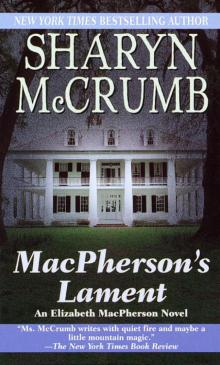 Elizabeth MacPherson 07 - MacPherson’s Lament
Elizabeth MacPherson 07 - MacPherson’s Lament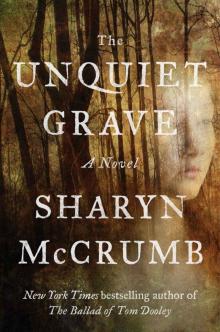 The Unquiet Grave: A Novel
The Unquiet Grave: A Novel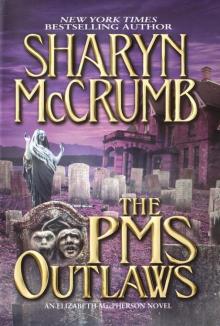 The PMS Outlaws: An Elizabeth MacPherson Novel
The PMS Outlaws: An Elizabeth MacPherson Novel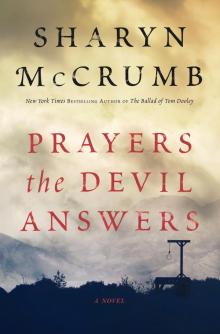 Prayers the Devil Answers
Prayers the Devil Answers Paying the Piper
Paying the Piper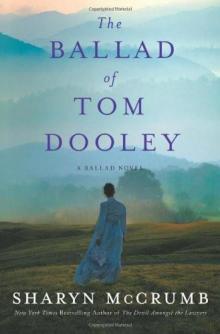 The Ballad of Tom Dooley: A Ballad Novel
The Ballad of Tom Dooley: A Ballad Novel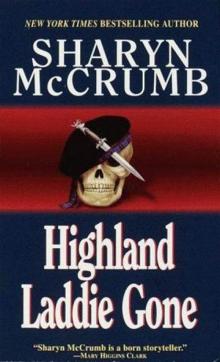 Highland Laddie Gone
Highland Laddie Gone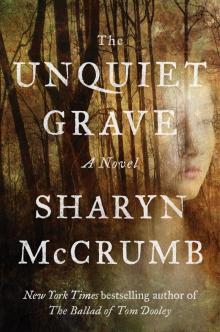 The Unquiet Grave
The Unquiet Grave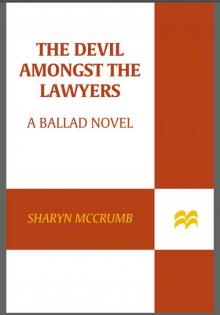 The Devil Amongst the Lawyers
The Devil Amongst the Lawyers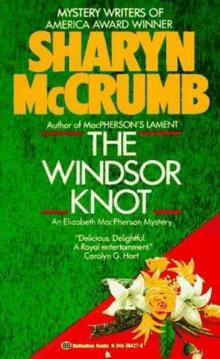 The Windsor Knot
The Windsor Knot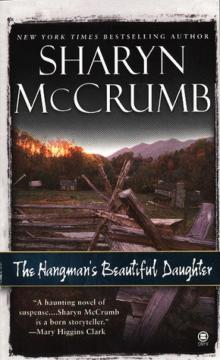 The Hangman's Beautiful Daughter
The Hangman's Beautiful Daughter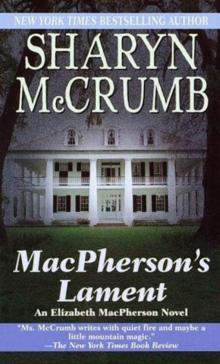 MacPherson's Lament
MacPherson's Lament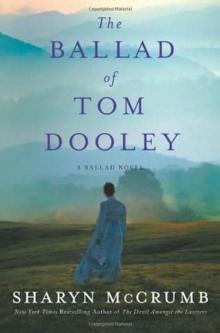 The Ballad of Tom Dooley
The Ballad of Tom Dooley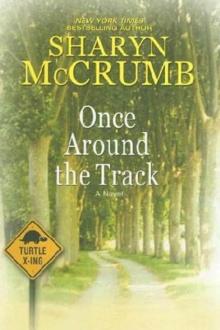 Once Around the Track
Once Around the Track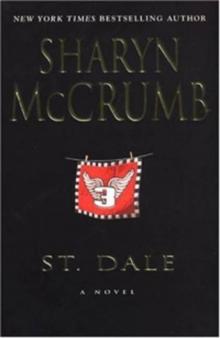 St. Dale
St. Dale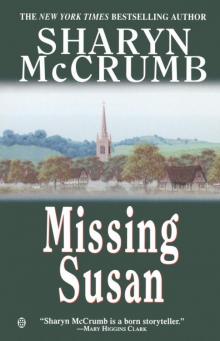 Elizabeth MacPherson 06 - Missing Susan
Elizabeth MacPherson 06 - Missing Susan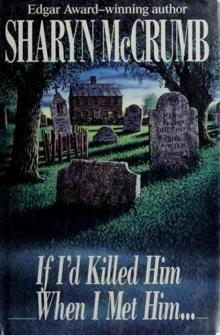 If I'd Killed Him When I Met Him…
If I'd Killed Him When I Met Him…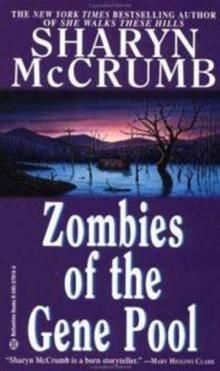 Zombies of the Gene Pool
Zombies of the Gene Pool Bimbos of the Death Sun
Bimbos of the Death Sun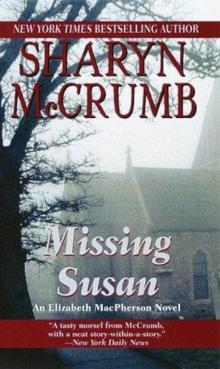 Missing Susan
Missing Susan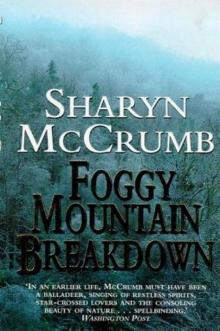 Foggy Mountain Breakdown and Other Stories
Foggy Mountain Breakdown and Other Stories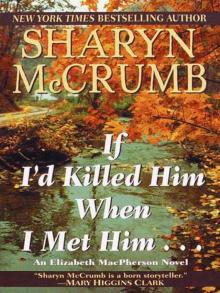 If I'd Killed Him When I Met Him
If I'd Killed Him When I Met Him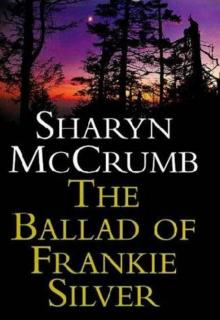 The Ballad of Frankie Silver
The Ballad of Frankie Silver Lovely In Her Bones
Lovely In Her Bones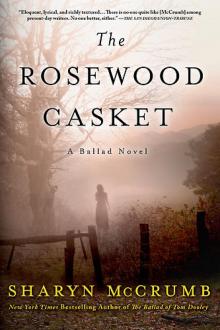 The Rosewood Casket
The Rosewood Casket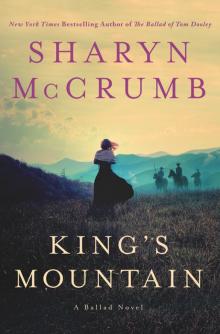 King's Mountain
King's Mountain